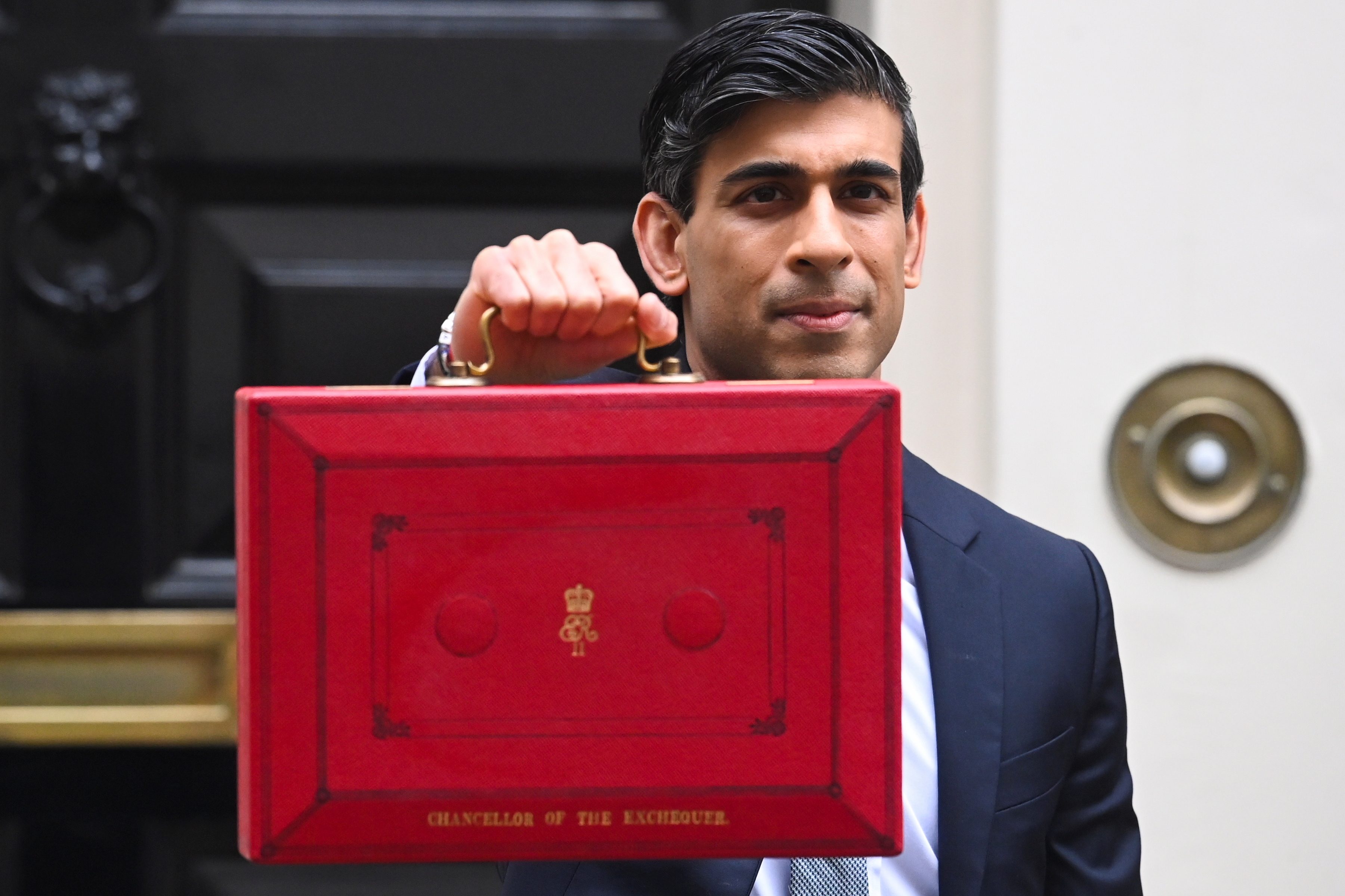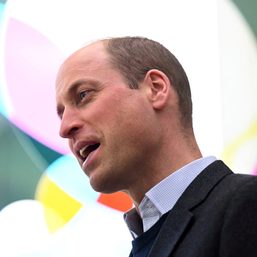SUMMARY
This is AI generated summarization, which may have errors. For context, always refer to the full article.

Finance minister Rishi Sunak delivered what he hopes will be a last big spending splurge to get Britain’s economy through the COVID-19 crisis, and announced a corporate tax hike from 2023 as he began to focus on the huge hit to the public finances.
Sunak said in an annual budget speech on Wednesday, March 3, that the economy would return to its pre-pandemic size in mid-2022, six months earlier than previously forecast, helped by Europe’s fastest coronavirus vaccination program.
But lasting economic damage equivalent to 3% of annual output would persist, and 65 billion pounds ($91 billion) of extra support was needed in the short term as restrictions were lifted over the next few months, he said.
Sunak’s early warning that he will demand more money from companies – and most individual taxpayers too – makes him one of the first policymakers from rich countries to set out a plan to tighten budget policy after the pandemic.
Britain’s first rise in corporation tax since 1974 will see big, profitable companies pay 25% from 2023 compared to 19% now and the overall rate of taxation in the economy increase to its highest since 1969.
But before then firms can use a two-year “super-deduction” tax break that Sunak hopes will snap them out of their pandemic deep-freeze and invest to boost short-term growth.
The government’s budget watchdog said the move was likely to bring forward investment that would have taken place later.
In his speech to parliament, Sunak repeated his plan to do “whatever it takes to support the British people and businesses” after the economy slumped by 10% last year.
Britain has also suffered Europe’s biggest COVID-19 death toll.
“Once we are on the way to recovery, we will need to begin fixing the public finances – and I want to be honest today about our plans to do that,” he said.
The support measures included a five-month extension of Britain’s huge jobs rescue plan, wider help for the self-employed, and the continuation of an emergency increase in welfare payments.
A property tax exemption for retail, hospitality, and leisure businesses will now run until the end of June, by when Prime Minister Boris Johnson hopes to have lifted most COVID-19 restrictions.
An existing tax break for home buyers was extended by three months until June 30 and then for cheaper homes until the end of September.
Pubs and house builders gain, bond prices fall
Shares in housebuilders gained on the news, with Persimmon one of the top risers in the FTSE 100, up almost 7%.
Pub firms JD Wetherspoon and Premier Inn owner Whitbread also rose more than 5%, helped by an extended value-added tax cut for the hospitality sector.
But British government bond prices fell sharply after Sunak said overall borrowing will be much bigger next financial year than thought just a few months ago – 234 billion pounds, or 10.3% of gross domestic product, compared with a previous estimate of 164 billion pounds, or 7.4% of GDP.
The UK Debt Management Office said it planned to sell 296 billion pounds of gilts in the coming year, well above the 247 billion pounds expected in a Reuters poll.
“The UK’s fiscal stance has become much looser, and more focused on investment, more in line with its US and euro area counterparts,” Morgan Stanley economist Jacob Nell said.
“This shift changes our view of the UK. Near term, we see a stronger and more investment-focused recovery bringing forward the return to pre-COVID-19 levels of output.”
To get a grip on borrowing, Sunak’s future hikes will increase the tax burden from 34% to 35% of GDP by the mid-2020s.
“The UK is thus to become the first major economy to consider such measures,” Valentin Marinov, head of G10 foreign exchange research at Credit Agricole, said.
As well as the COVID-19 shock, many companies are also under strain from Brexit after Britain left the European Union‘s single market on January 1, and the government faces the challenge of huge investment to meet its promise to create a net zero carbon economy by 2050.
UK early mover on tax hikes
Britain’s Office for Budgetary Responsibility (OBR) said the economy was likely to grow 4% in 2021, less than the 5.5% it had forecast in November, due largely to the current lockdown which began in January. The growth forecast for 2022 increased to 7.3% from 6.6%.
Sunak has already racked up Britain’s highest borrowing since World War II, with the deficit reaching an estimated 17% of GDP in the 2020-2021 financial year that ends in April.
Sunak said the corporation tax rise would still leave the headline rate lower than in the rest of the G7 group of rich nations.
Rain Newton-Smith, chief economist at the Confederation of British Industry, said the hike was “a huge jump” and that other G7 countries would be more competitive than Britain when state and federal level tax breaks were taken into account.
The Institute for Fiscal Studies said that after the tax rises, corporation tax revenues would be a greater share of GDP in Britain than in the United States, Germany, France, or Italy.
Sunak also said he would freeze the amount of money that people can earn tax-free and the threshold for the higher rate of income tax at the 2021-2022 level until April 2026. – Rappler.com
$1 = 0.7161 pounds
Add a comment
How does this make you feel?



![[Time Trowel] Evolution and the sneakiness of COVID](https://www.rappler.com/tachyon/2024/02/tl-evolution-covid.jpg?resize=257%2C257&crop=455px%2C0px%2C1080px%2C1080px)


![[Ask The Tax Whiz] How to file annual income tax returns for 2023](https://www.rappler.com/tachyon/2022/11/tax-papers-hand-shutterstock.jpg?resize=257%2C257&crop_strategy=attention)

![[Ask The Tax Whiz] Are cross-border services taxed in the Philippines?](https://www.rappler.com/tachyon/2024/02/bpo-workers.png?resize=257%2C257&crop=72px%2C0px%2C785px%2C785px)
![[Ask the Tax Whiz] Ease of paying taxes law: What you need to know](https://www.rappler.com/tachyon/2023/02/calculate-february-22-2023.jpg?resize=257%2C257&crop_strategy=attention)






There are no comments yet. Add your comment to start the conversation.